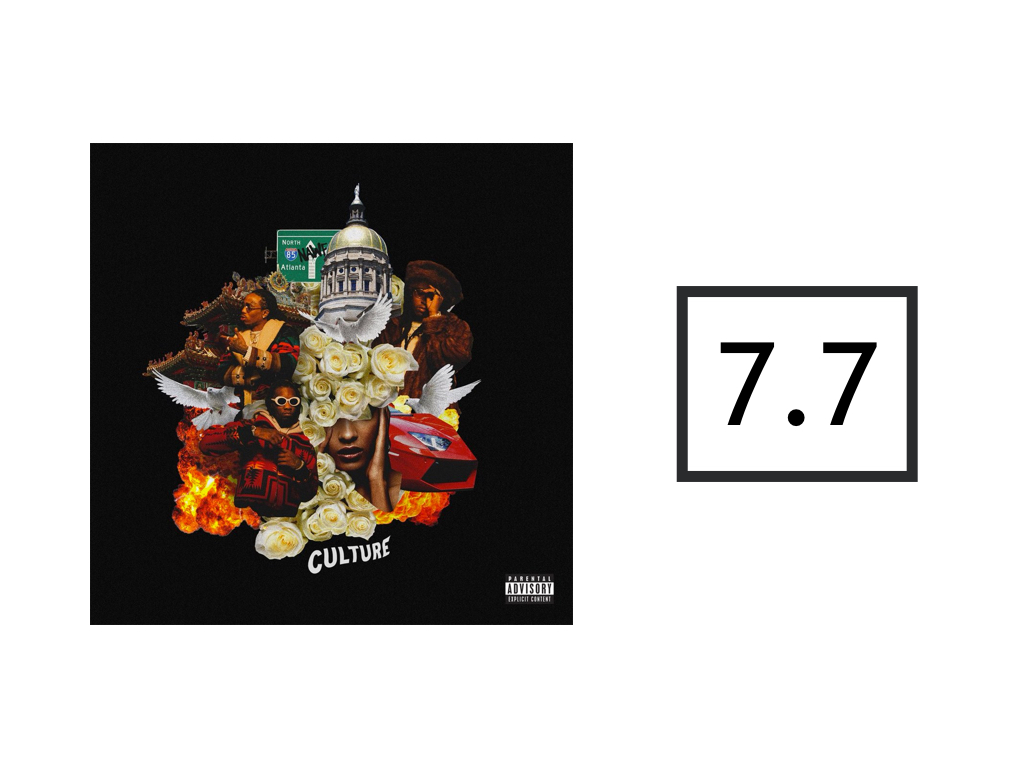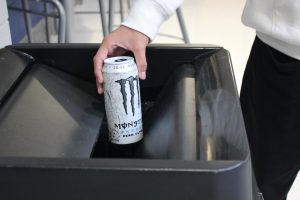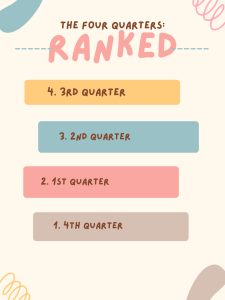New Migos Album Is Culturally Shifting
May 31, 2017
With their 2013 breakout single “Versace,”Atlanta-based trio Migos established their own unique style of trap-rap. “Versace” brazenly honed in on the materialist side of hip hop, with rappers Quavo, Takeoff, and Offset tag-teaming rhymes that come in smooth, yet choppy bursts, that create a tangy sounding flow.
With “Culture,” Migos are back with that same style—refined over the course of several mixtapes—and a bold claim to their influence over the game.
The album begins with arguably the worst song, “Culture,” featuring D.J. Khaled. The song opens with D.J. Khaled praising Migos and playing the role of a fanboy. The rhymes are basic and come with little substance over a beat that is pretty dry: “Yeah, I bought the Benz off the lot/ Just to give your h** a lift/ I’m havin’ the sauce in the refrigerator/ Just make sure you bring the chips.”
Structurally, the trio trades in the reliable verse-chorus-verse format for eccentric structures on songs such as “Culture,” “T-Shirt” and “Big On Big.” rapper Takeoff takes center stage on the choppy “T-Shirt” by rapping a lengthy and memorable verse, including the multisyllabic-rhyme standout, “Neck water faucet, mocking birds mocking / Act pint, stocking, nats keep thotting.” These varying song structures enhance the unwavering fun of “Culture” by adding a sense of unpredictability as one song transitions to the next.
Although Migos recruited an all-star supporting cast including 2 Chainz, Lil Uzi Vert and DJ Khaled, among others, “Culture” is still a Migos album from start to finish. The features are for the most part forgettable, except for DJ Khaled’s humorously trite spoken word on the opening track about haters trying to “play” Migos and him.
Moreover, Migos’ skillful interplay of “Culture” attests to the group’s powerful chemistry, which is perhaps why actor Donald Glover called Migos “the Beatles of our generation” in his Golden Globes acceptance speech.
However , the trio’s tried-and-true interplay has its limitations: Outside of quirky and at times hilarious punch lines such as, “Still be playin’ with pots and pans, call me Quavo Ratatouille,” Migos continues to prioritize flow and delivery over introspection or substance in the lyrics. Song subjects fail to explore much beyond the hedonistic cliches of mainstream rap. But the critical ingredient in the memorability of “Culture” is the individual strength of each rapper. Migos has mastered playing to each others’ skills, resulting in a dynamic sound on even the stalest songs on “Culture.”
While Takeoff delivers breathy, sharp hooks on club anthems such as “Call Casting,” Offset proves his central role in “Bad and Boujee” is no fluke. His rhymes weave through the beats on “Culture” and he carefully shifts the tempos of his rapping in conjunction with razor-sharp ad-libs such as “skrt skrt!” and “grah!” from Takeoff & Quavo.
Nevertheless, it is Quavo who steals the show on “Culture.” Abandoning the yelping delivery of his early rapping style, Quavo instead turns to Auto-Tune to give his voice a cavernous, atmospheric sound. His rapping is the slowest and the most methodical of the trio and yet it is precisely his crooning and humming that makes for some of the best moments on the album.
Songs such as “Slippery,” which features Gucci Mane, are furnished immaculately by Quavo’s dreary vocals, and the standout track “All A–” allows Quavo to effortlessly grip the listeners’ attentions as he wails on the chorus, “Beat the pot, beat the pot, beat the pot, oh.”
Sharp snares, black hole bass notes, and an overabundance of hi-hat triplets make up almost every beat, with deep synths filling in the gaps. There’re a few bangers for sure—the ominous “T-Shirt” and the refreshing flute melody in “Get Right Witcha” come to mind.
As a whole, the Album is truly culture shifting as Migos has continued to craft their unique style of trap-rap that has revolutionized the rap game.








